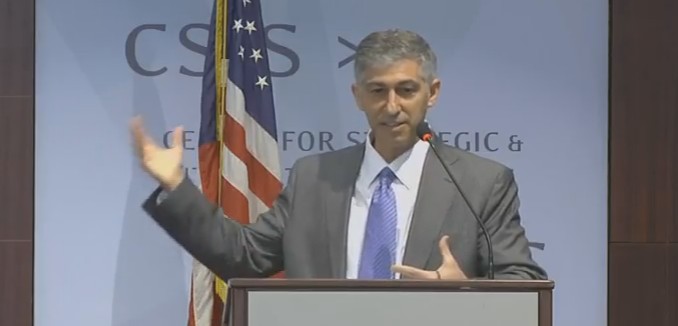Iran’s continued illicit behavior is making European banks and companies wary of doing business with it, even after the end of nuclear-related sanctions, President Barack Obama’s former Treasury undersecretary for terrorism and financial intelligence told The Weekly Standard on Thursday.
Stuart Levey, now the chief legal officer of London-based HSBC Holdings, one of the world’s largest banking institutions, said that international firms are reluctant to transact with Iran because it is routinely financing terrorism and laundering money. “What you’ve seen more broadly … is the sanctions get lifted, [but] the major international financial institutions will still resist doing business until the underlying facts change,” he said.
Levey made his remarks amid concerns that Iran is attempting to extract more economic concessions from the West, specifically the United States, by claiming that is not keeping the terms of the nuclear deal and improperly maintaining sanctions.
Amir Touraj and Benham Ben Taleblu, analysts for the Foundation for Defense of Democracies, wrote in U.S. News and World Report last month that Iran is falsely complaining about American non-compliance and threatening to scuttle the deal because it “feels it can get even more merely by hinting it might walk away.”
Levey similarly observed in a Wall Street Journal op-ed published in May that Secretary of State John Kerry’s active encouragement of European banks to do business with Iran was odd, considering that Iran was still engaged in the same illicit behavior that subjected it to financial sanctions in the first place.
No one has claimed that Iran has ceased to engage in much of the same conduct for which it was sanctioned, including actively supporting terrorism and building and testing ballistic missiles. But now Washington is pushing non-U.S. banks to do what it is still illegal for American banks to do.
This is a very odd position for the U.S. government to be taking.
Ali Akbar Velayati, a senior adviser to Iranian Supreme Leader Ayatollah Ali Khamenei, said last month that Iran should not join the Financial Action Task Force (FATF), a global watchdog against money laundering, because it would bar Iran from financing terrorism. In Velayati’s words, joining the FATF would “impose unfair restrictions on officials of the Islamic Republic of Iran,” because it would prevent them from backing groups involved in the “campaign against Zionism and its supporters.” He specifically mentioned Hezbollah, which the U.S. has designated as a terrorist organization since 1997.
The FATF temporarily removed Iran in June from its blacklist of countries that use their financial institutions to support terrorism, though the Basel Institute on Governance ranked the Iranian financial system as the world’s biggest money-laundering risk a month later. Many Iranian banks are still subject to American, European, and global sanctions due to their financing of terrorism.
[Photo: Center for Strategic & International Studies / YouTube ]




